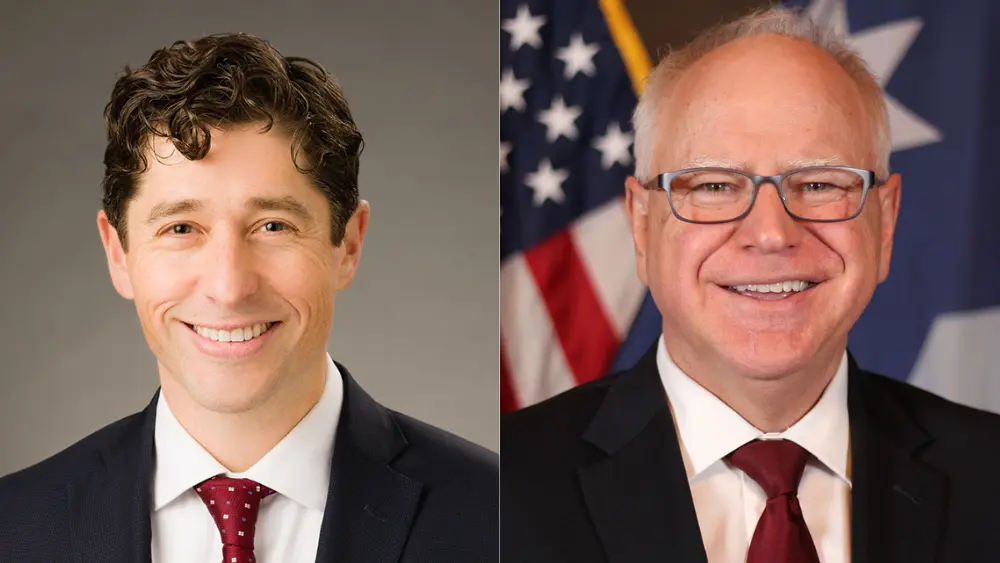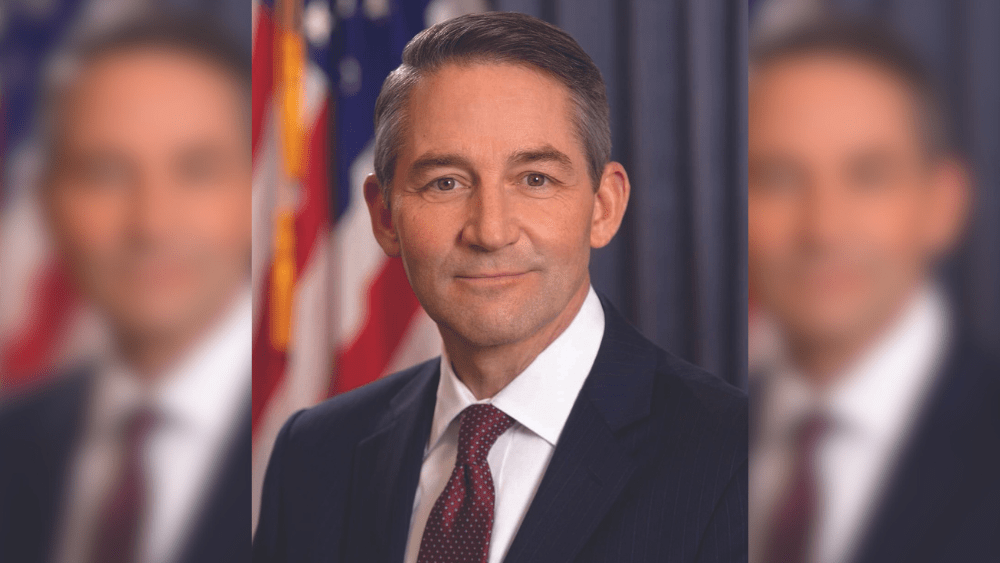By Steve Hallstrom — Special to The Farmer.
(Fargo, ND) — U.S. Senator Kevin Cramer (R-ND) says the Supreme Court’s ruling that struck down the 1984 case Chevron v. Natural Resources Defense Council could have significant impact in North Dakota and nationwide.
The ruling, which instructed judges to defer to federal agencies in cases where the law is unclear, was overturned by a 6-3 vote on Friday, June 28th. Justices Elena Kagan, Sonia Sotomayor, and Ketanji Brown Jackson voted in opposition.
“It’s the latest and perhaps the most significant dagger into the heart of the deep state yet,” said Cramer. “States matter here. States have jurisdiction over these things.”
The 40-year-old decision made it easier for the federal government to regulate the environment, firearms, public health, climate, and education. Judges may now be able to rely on their own best interpretation of the law instead of deferring to the agencies when statutes are vague or ambiguous.
Conservatives have long argued that Chevron allowed unelected bureaucrats to become activists and routinely turn their partisan opinions into law, and that an overturning of Chevron would effectively return many decisions back to the states where local knowledge is more prevalent and impact of rulings could be better understood. Opponents of the decision say the court’s so-called conservative majority is arrogant to believe that it knows better than experts with significant background and experience in key issues.
Civil rights organizations, environmental groups, labor unions, and Democrats on both the national and state level had urged the court to leave Chevron intact.
Justice Elena Kagan agreed, saying that with the dismissal of Chevron, “a rule of judicial humility gives way to a rule of judicial hubris. “In one fell swoop, the majority today gives itself exclusive power over every open issue — no matter how expertise-driven or policy-laden — involving the meaning of regulatory law.”
White House press secretary Karine Jean-Pierre had sharp criticism of the ruling, saying it “is yet another deeply troubling decision that takes our country backwards. Republican-backed special interests have repeatedly turned to the Supreme Court to block common-sense rules that keep us safe, protect our health and environment, safeguard our financial system, and support American consumers and workers.”
Supreme Court justices hadn’t invoked Chevron since 2016, but lower courts had issued multiple rulings based on the case. Friday’s ruling came from consolidated cases challenging a rule by the National Marine Fisheries Service that required the herring industry to bear the costs of government observers on fishing boats.
Chief Justice John Roberts wrote, for the majority, that the decision does not call into question prior cases that relied on the Chevron decision. But some legal experts say Friday’s decision opens the door to widespread challenges to regulations previously upheld under Chevron.
North Dakota’s Republican state leadership universally hailed the decision.
Governor Doug Burgum and Attorney General Drew Wrigley issued a joint statement applauding the ruling.
“Today’s Supreme Court opinion marks the beginning of the end of federal overreach by unelected bureaucrats who stretch and twist the laws passed by Congress to advance their own misguided agendas, raising costs for consumers by wreaking havoc on our key industries including agriculture, energy and manufacturing” Burgum and Wrigley said.
“This is a major win for North Dakota and a huge boost to our efforts to push back against federal overreach, with more than 30 federal rules and regulations currently being challenged. The Supreme Court has appropriately tipped the scale away from unelected federal bureaucrats and back toward the people’s Congress while also restoring states’ rights, because no one cares more about the land, water and air in North Dakota than the people who live here.”
Senator John Hoeven (R-ND) says the decision is a major win for the rule of law and will aid efforts to push back on unworkable rules being advanced by President Biden, including regulations that he says target coal-fired electric and domestic energy production, restrict access and development to taxpayer-owned lands and resources, and unreasonably punish oil and natural gas companies in venting and flaring activities.
“This is the right call by the Supreme Court,” said U.S. Senator John Hoeven. “The Chevron deference doctrine allowed federal agencies to ignore the directives passed by Congress and issue broad rulemaking that goes well beyond the agencies’ lawful authority. All the while, the lower courts were prevented from upholding the law as written and protecting against executive overreach. This decision is about restoring the rule of law, respecting the Constitutional structure of our government and better enabling Congress and the judiciary to fulfill their proper roles. Moreover, this will enable us to better push back against the costly, unworkable regulations being imposed by the Biden administration, which have targeted our energy industry, manufacturers, ag producers and many others.”
U.S. Senator Kevin Cramer, in an interview with KTGO Radio (AM 1090 / FM 92.7 – Tioga/Watford City), said this could be a major step into reducing the size and scope of the federal government.
“Chevron was the doctrine that the courts would yield or defer to the federal or state agencies, because they’re the so-called experts. And the Supreme Court said, ‘we’re not ruled by experts, we’re a self-governed nation,’ and as Winston Churchill said, ‘Expert knowledge is limited knowledge.”
Cramer was asked if that means the party in power could fire half the bureaucracy in Washington DC.
“That’s my goal. My goal is that on January 20th, if we have the Republican Senate, Republican House, and Donald Trump, we could put on the table a budget that could pass with just 51 votes that says based on all these Supreme Court decisions, you are no longer needed. Two-thirds of some agencies may not even have an authority left. That’s what I think we ought to do. I think we should take advantage of these first days and weeks and the first couple years of a Trump presidency.”
Cramer says this could be an effective way to combat rising federal expenses and fiscal deficits. The Congressional Budget Office reports that the U.S. national debt is growing by $1 trillion about every 100 days, equal to roughly $3.6 trillion per year, and that as the national debt has ballooned, debt payments even exceeded Medicaid outlays in 2023—one of the government’s largest expenditures.
“It should sell without that,” said Cramer, “because it will so empower the property owners, the governors, the state legislatures, but it will benefit the economy as well as take down the debt.”





